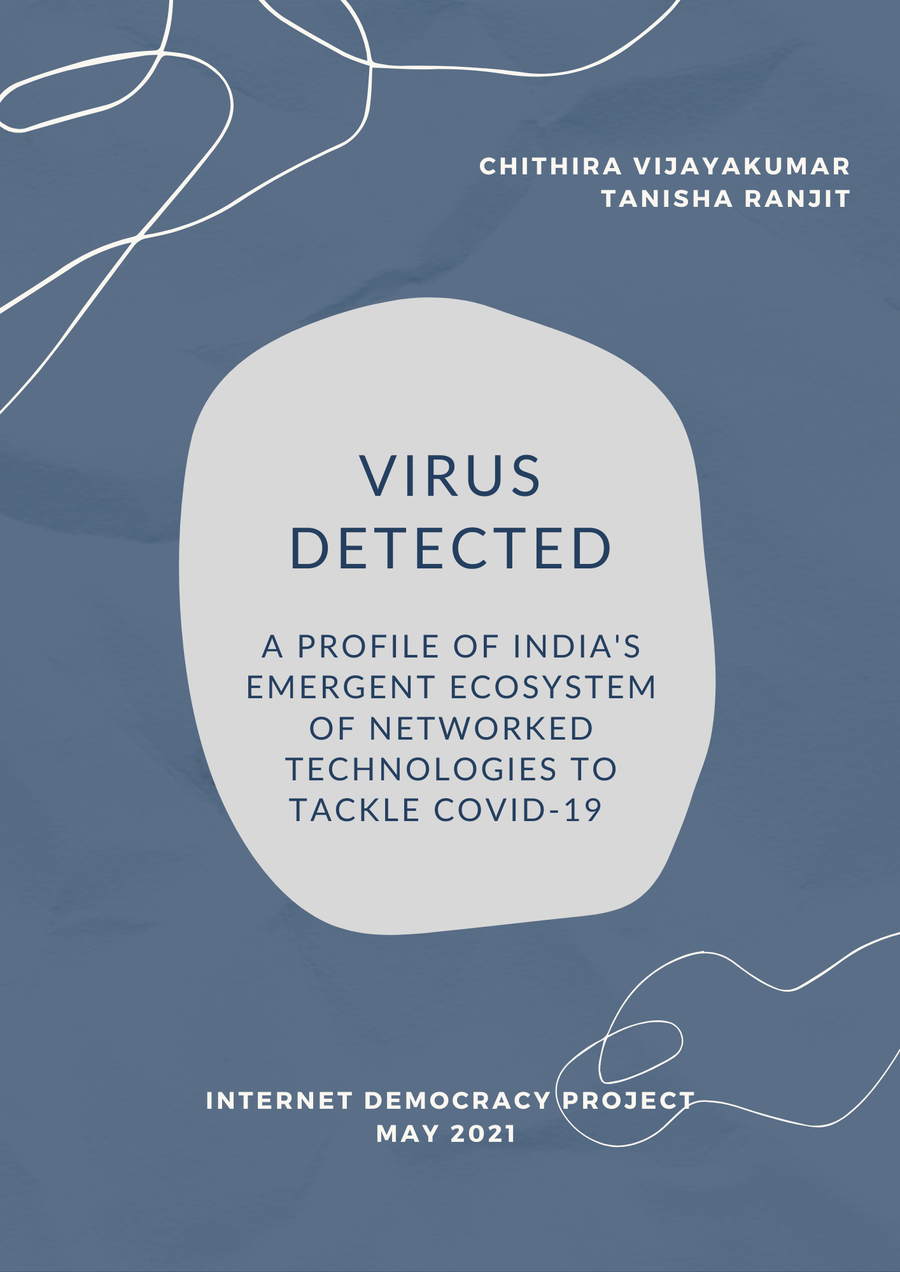Virus detected: A profile of India’s emergent ecosystem of networked technologies to tackle Covid-19

How useful have apps, drones, online portals, and the National Migrant Information System been to tackle Covid-19 from a public health perspective? To what extent have they impacted social control? And how have marginalised people been affected in particular? This research study maps the deployment of these technologies and the evidence available so far of their usefulness to tackle the crisis. The study was conducted as part of the Covid App project. The Covid App project is a civil society initiative that stemmed from a research interest in Covid-specific interventions – especially contact tracing apps – in countries outside Europe and North America. This shared research focus drew together six civil society organisations: ALT Advisory (South Africa), Internet Democracy Project (India), InternetLAB (Brazil), Karisma (Colombia), SMEX (Lebanon), and United for Iran. AWO, a data rights agency, provided coordination support. Over a 7‑month period, the group reviewed contact tracing apps and assessed their interaction with public health, human rights, privacy, and data protection in the six countries of focus. We conducted interviews, filed freedom of information requests, and extensively reviewed public documentation to produce in-depth country reports. Contact tracing apps cannot be evaluated in a vacuum: the research considers alternative measures, technological and others, that were deployed in response to the pandemic, and often interacted with the design and deployment of contact tracing apps themselves. Today, we publish the in-depth country reports – each accompanied by a set of recommendations – alongside an expert technical review of seven contact tracing apps from our countries of focus. We hope our contribution will support the critical evaluation of contact tracing apps and other pandemic measures. In addition, we hope to foster a discussion of safeguards – including recourse and oversight – that will better protect marginalised and vulnerable groups during public health crises, bolster human rights, democracy, and rule of law, and strengthen future pandemic response. More